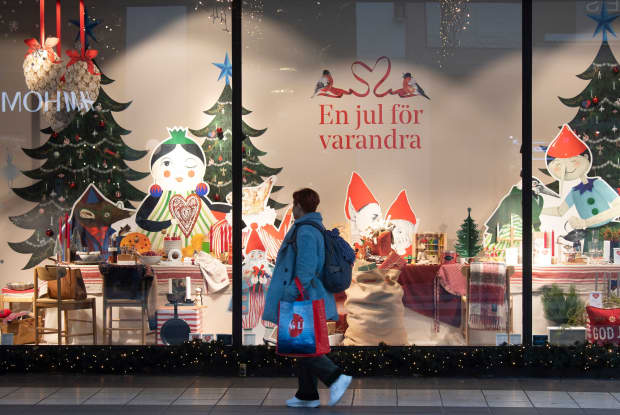This post was originally published on this site

The population’s confidence in the authorities’ ability to combat COVID-19 has fallen to 42% from 55% last month, according to a national poll conducted by daily newspaper DN and market research firm Ipsos.
TT News Agency/AFP via Getty Images
The Swedish public is losing confidence in the country’s strategy to tackle the coronavirus pandemic, with many worried about the capacity of the nation’s healthcare system.
The population’s confidence in the authorities’ ability to combat COVID-19 has fallen to 42% from 55% last month, according to a national poll conducted by daily newspaper DN and market research firm Ipsos.
It also found that 82% of people were either “somewhat” or “very worried” about whether Sweden’s healthcare system could meet the challenge, while 44% feared.
Sweden has reported more than 34,000 new COVID-19 cases in the past week, according to the Johns Hopkins University, on track for a record weekly high. Deaths have also been rising but the 234 recorded in the past week sits below the weekly record of 660 in April.
On Thursday, the Swedish Royal Court revealed that Sweden’s Prince Carl Philip and his wife Princess Sofia have tested positive for the virus but were feeling well despite showing “milder flu symptoms.”
After months of voluntary measures and no lockdowns, the Swedish government performed a U-turn earlier this month introducing enforced restrictions on public gatherings to curb the spread of the virus.
“It is quite obvious that the increased rate of infection, combined with the measures that the authorities have taken, have led to a sharp rise in concern,” Ipsos analyst Nicklas Kallebring, told DN.
The recent rise in new cases, hospitalizations and deaths has dashed hopes of the country developing herd immunity to the virus.
On Tuesday, Sweden’s state epidemiologist said that the country had not seen evidence of herd immunity slowing the spread of coronavirus in the country. “The issue of herd immunity is difficult,” Anders Tegnell said at a news briefing, according to Bloomberg. “We see no signs of immunity in the population that are slowing down the infection right now,” he added.
In an address to the nation, Sweden’s prime minister, Stefan Löfven said on Nov. 22 that people’s health and lives are still at risk, and the danger is increasing. “More and more ICU places are being used for treating seriously ill COVID-19 patients. More and more people are dying.”
Sweden’s statistics agency said on Wednesday that life expectancy in the country will probably fall in 2020 because of the COVID-19 pandemic.
“The increased spread of covid-19 we see now may well lead to more extra deaths during the last two months of the year, which may result in even lower life expectancy in 2020,” Örjan Hemström, demographer at Statistics Sweden, said.
“Life expectancy has increased steadily in Sweden during the period 1900–2019. That it sinks stands out,” Hemström added.

